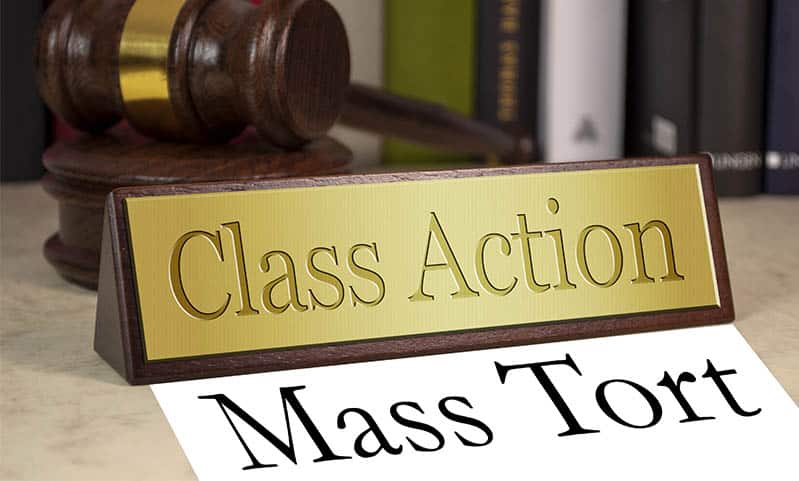Justice for All: The Function of Class Action Lawsuits in Safeguarding Customers
Wiki Article
Trick Factors to Think About in Class Action Claims: Insights for Attorneys
Class activity suits can be tough and intricate for legal representatives to navigate. Recognizing these factors and their effects is vital for attorneys intending to efficiently represent their customers in class action lawsuits.Class Certification Requirements
To proceed with a class activity suit, lawyers have to navigate with a collection of rigid class qualification demands. Course accreditation is an important stage in the lawsuits procedure that identifies whether a group of plaintiffs can be certified as a class and continue with their claims collectively. These needs offer to guarantee that class actions are reliable and appropriate systems for fixing disagreements including countless plaintiffs.Among the main needs for course qualification is numerosity. This requirement demands that the class be so various that joinder of all members is unwise. While there is no set numerical threshold, courts typically consider a course with even more than 40 participants as adequately various. In addition, commonness is one more essential element in course accreditation. It requires that there are inquiries of legislation or fact typical to the course, which have to predominate over private issues.
Competence of depiction guarantees that the agents will relatively and properly secure the passions of the class members. A course action should also please the requirement of prevalence, indicating that a class action is a premium approach for settling the conflict compared to various other available methods.
Navigating via these class accreditation demands can be tough and complex for lawyers. Nonetheless, understanding and conference these demands are necessary to efficiently seek a course activity lawsuit on behalf of a group of plaintiffs.

Commonness of Claims
The following crucial aspect to think about in the course certification procedure is the commonality of cases amongst the plaintiffs. Commonness describes whether the course participants share similar legal problems and questions of reality that can be dealt with jointly. In other words, it is needed to figure out if there are usual inquiries of legislation or fact that are main to the lawsuits which predominate over any type of specific issues.To develop commonality, the plaintiffs have to show that there are legal or factual issues that prevail to the whole course. This can be achieved by identifying a common course of conduct or a typical legal theory that underlies the claims (Class action lawsuit). The visibility of typical concerns is essential due to the fact that it promotes judicial effectiveness and economic situation by permitting a single decision to fix the concerns for the whole class
Nonetheless, it is important to keep in mind that the commonness requirement does not necessitate that all the specific claims be similar. Differences in damages or individual situations do not necessarily defeat commonness if there are still typical questions that bind the class with each other.

Problems Computations
When determining damages in class action suits is the precise evaluation of economic losses sustained by the course members,One important aspect to take into consideration. In order to establish the proper quantity of payment, it is needed to examine the degree of injury suffered by each person within the class. This can be a complicated task, as it calls for a thorough evaluation of various factors, such as the nature and period of the damage, the economic influence on the influenced individuals, and any kind of various other pertinent considerations.When analyzing financial losses, it is crucial to think about both the direct and indirect damages experienced by the course participants. Direct problems refer to the actual out-of-pocket expenses incurred as an outcome of the accused's activities. These may include medical expenses, residential property damages prices, or any type of other substantial financial losses. On the various other hand, indirect damages incorporate the intangible losses that are much more challenging to measure, such as psychological distress, loss of credibility, or reduced lifestyle.
To compute problems properly, lawyers must gather extensive evidence, including financial records, expert opinions, and testaments from the class participants. They may additionally require to engage monetary and financial experts that can give insights into the long-term financial ramifications of the damage suffered.
Negotiation Settlements
Throughout negotiation negotiations, attorneys have to engage in careful and tactical conversations to reach an equally agreeable resolution for all celebrations involved in the class activity claim (Class action lawsuit). Negotiation negotiations are a vital stage in the litigation procedure, where the celebrations attempt to get to a compromise without going to test. These settlements require attorneys to employ their arrangement abilities, lawful knowledge, and understanding of the instance's weaknesses and staminasOne important variable to consider during settlement arrangements is the prospective threats and prices associated with continuing to test. Lawyers need to carefully evaluate the possibility of success at test and evaluate it versus the possible advantages of a settlement. They must also take into consideration the possible time and resources that would certainly be called for to go via a test, as well as the possible unfavorable publicity that can arise from a public trial.
An additional key aspect is the passions and concerns of the class members. Lawyers need to understand what the course members intend to attain through the claim and exactly how a settlement can address their grievances. By thinking about the class members' point of views and seeking advice from with them throughout the settlement process, lawyers can better advocate for their rate of interests and ensure that any settlement reached is reasonable and satisfactory.
In addition, lawyers have to be prepared to work out with the opposing party and their lawful agents. This requires a deep understanding of the strengths and weaknesses of both sides' debates and a desire to compromise. Knowledgeable mediators can take advantage of this knowledge to locate usual ground and craft innovative solutions that fulfill the demands of all celebrations entailed.
Reliable Customer Depiction
To efficiently represent their clients in class action Class action lawsuit claims, lawyers should possess an extensive understanding of the instance and carefully supporter for their customers' rate of interests. Efficient customer representation requires legal representatives to develop open lines of interaction and maintain a strong attorney-client connection throughout the whole litigation procedure.
Firstly, attorneys must thoroughly assess the facts, legal problems, and potential dangers related to the situation. This includes conducting an in-depth investigation, evaluating relevant papers, and seeking advice from specialists if essential. By acquiring a deep understanding of the instance, attorneys can establish a calculated strategy tailored to their customers' goals and requirements.
In addition, legal representatives have to actively advocate for their customers' passions during all stages of the legal action. This includes preparing persuasive lawful arguments, conducting detailed research, and providing compelling proof to support their customers' claims. Lawyers should also remain notified concerning recent advancements in class action legislation and utilize this understanding to reinforce their clients' positions.
Along with legal advocacy, reliable customer representation entails giving regular updates, addressing concerns, and addressing any kind of issues that clients may have. Attorneys must be proactive in maintaining their clients informed concerning the progress of the situation and any substantial advancements that may affect the result.
Inevitably, effective customer representation calls for attorneys to be diligent, responsive, and devoted to safeguarding their customers' interests and legal rights. By embracing a client-centered method, legal representatives can make best use of the opportunities of attaining a favorable end result in course activity claims.
Final Thought
In conclusion, attorneys associated with course activity lawsuits ought to think about essential variables such as course accreditation requirements, the commonality of cases, damages calculations, negotiation negotiations, and efficient customer depiction. By carefully resolving these factors, legal representatives can improve their chances of success in course action suits and make certain that the interests of their clients are shielded.
Comprehending these aspects and their ramifications is vital for attorneys aiming to efficiently represent their clients in class activity legal actions.To proceed with a course action lawsuit, lawyers must browse via a collection of rigorous class accreditation needs. Class certification is an essential phase in the lawsuits process that determines whether a team of complainants can be accredited as a class and continue with their cases jointly. A course activity should additionally please the need of supremacy, indicating that a course activity is an exceptional approach for adjudicating the disagreement contrasted to other offered approaches.
One essential aspect to consider when computing damages in class action claims is the accurate analysis of monetary losses sustained by the class participants.
Report this wiki page